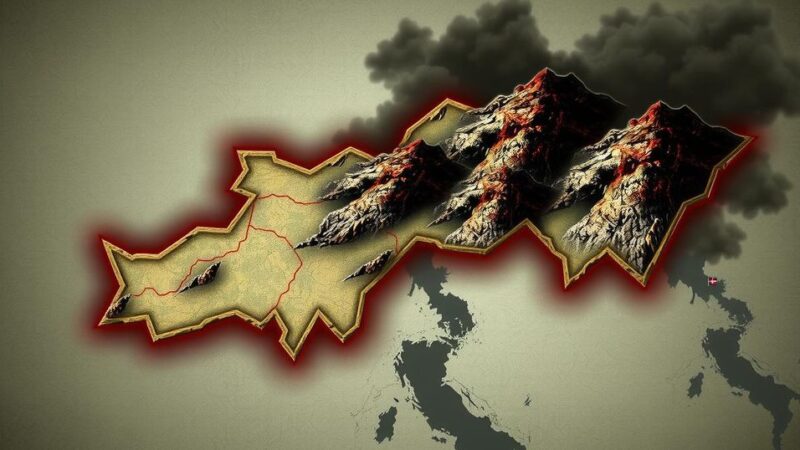Lebanon’s caretaker Prime Minister Najib Mikati issued a rare criticism of Iran, accusing it of meddling in local affairs after comments from Iranian parliament speaker Mohammad Baqer Ghalibaf regarding negotiations for a cease-fire between Israel and Hezbollah. Mikati summoned Iran’s envoy to address what he termed “blatant interference” in Lebanon’s sovereignty.
On Friday, Lebanon’s caretaker Prime Minister Najib Mikati publicly criticized Iran for its interference in Lebanese affairs. This unprecedented diplomatic clash arose after Iranian parliament speaker Mohammad Baqer Ghalibaf suggested Iran was prepared to negotiate terms to facilitate a cease-fire between Israel and Hezbollah. Prime Minister Mikati described Ghalibaf’s comments as “a blatant interference in Lebanese affairs” and promptly summoned the Iranian ambassador to address the matter. This response is particularly striking given the influential role that the Iran-backed Hezbollah plays in Lebanese politics and society. In an interview with France’s Le Figaro, Ghalibaf commented on Iran’s willingness to engage with France regarding U.N. Security Council Resolution 1701, which was established to conclude the 2006 conflict between Hezbollah and Israel and is seen as vital for achieving a cease-fire in Lebanon.
The relationship between Lebanon and Iran has often been characterized by Iran’s significant influence over the Iran-backed Hezbollah, which exerts considerable control over various aspects of Lebanese governance. The recent statements by Iranian officials about engaging in negotiations for a cease-fire signal Iran’s ongoing interest in shaping the dynamics between Hezbollah and Israel. Security Council Resolution 1701 remains a pivotal point in this discourse, as it aims to ensure peace and stability following past hostilities. Mikati’s admonition marks a notable event that underscores Lebanon’s desire to assert its sovereignty amidst external pressures and influences.
The recent denunciation by Prime Minister Najib Mikati of Iran’s involvement in Lebanese matters highlights a rare assertion of sovereignty by Lebanese leadership against a backdrop of significant Iranian influence through Hezbollah. As Lebanon navigates its complex political landscape, this incident signifies a potential turning point in its foreign relations and domestic policy regarding external interventions.
Original Source: www.nytimes.com






